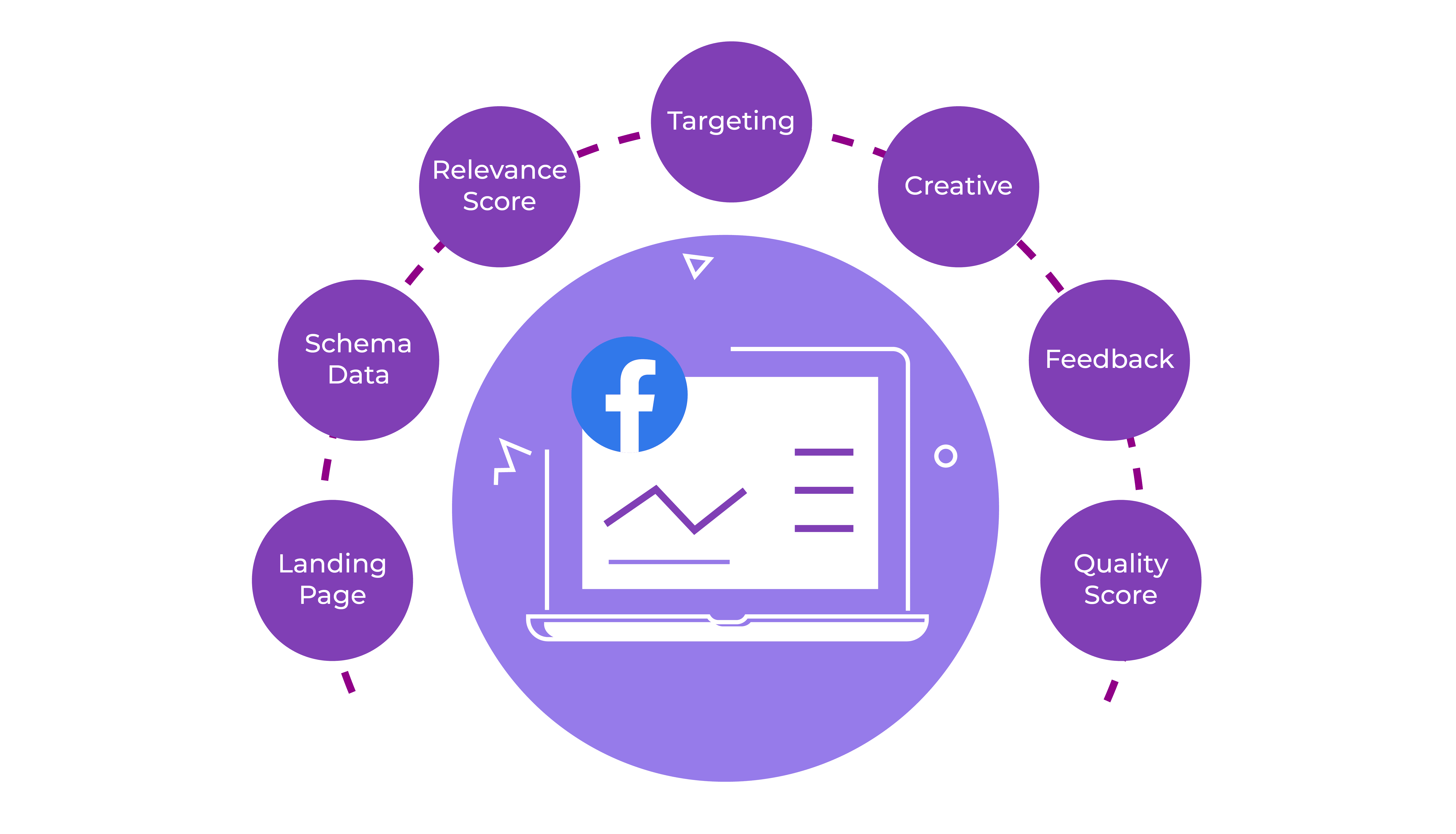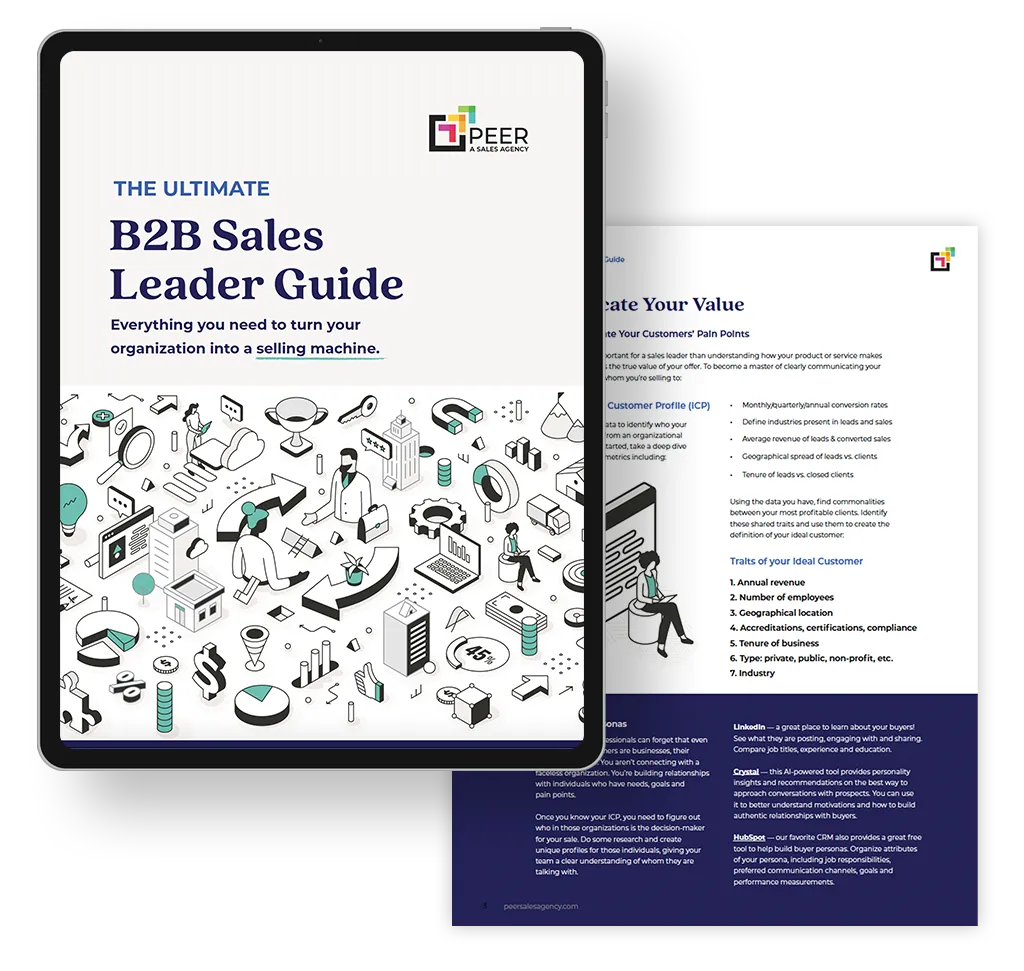Not understanding Facebook’s advertising algorithm can cause your business a whole slew of problems. Speaking from experience, we’ve seen ad accounts get shut down, campaigns not spend, ads that spend a lot with little return on investment, and more pitfalls that could’ve been avoided if the team had first understood Facebook’s algorithm. Here, we’ll attempt to save you from these headaches in an effort to help you launch and maintain successful Facebook campaigns.
What is the Facebook algorithm?
Using parent company Meta’s proprietary algorithm, Facebook attempts to match ads to users, creating a relevant, engaging user experience. If you’re a 22-year-old female on Facebook, then you probably don’t care about an ad that’s promoting beard oil. Facebook uses an algorithm to determine the best ad to show the best audience in order to provide a great user experience.
Although there are still unknowns about the Meta algorithm, there are certain principles that marketers can apply to their campaigns. Keep in mind that this algorithm is constantly changing; therefore, it’s our job to evolve with the updates in order to run successful campaigns.
When you launch a campaign, you’re entering an auction against thousands of other advertisers. Facebook then decides who wins that auction based on what’s known as the BEAR algorithm, which stands for:
- Bid
- Expected Action
- Relevance
There are billions and billions of auctions that take place every day on Facebook. For example, a 24-year-old male living in San Francisco has shown interest in Call of Duty, travel, entrepreneurship, Applebees, and NBA basketball.
- Advertiser 1 wants to target men ages 18-25 who are interested in entrepreneurship.
- Advertiser 2 wants to target men ages 18-25 who are interested in Call of Duty.
These advertisers both want to show their ad to this young man, even though they’re targeting two different interests. This is why when you launch a campaign, you’re going up against millions of other advertisers to try and win real estate in your target market’s news feed on Facebook (or wherever you’re placing your ads).
So how does Facebook decide whose ad gets shown?
How Facebook ads algorithm work?

Bidding
Your bid is how much you’re willing to spend for an action. This action could be a link click, lead, video view, purchase, etc.
As part of the auction process, Facebook looks at how much you’re willing to spend for your desired action as compared to how much other advertisers are willing to spend on their bid. If you come to the auction with a low bid, then Facebook will serve your competitor’s ad instead. This is the part of the algorithm you have the easiest control over.
Because we know Facebook serves ads based on an auction process, we can then assume that if our ads aren’t performing well, one troubleshooting tactic is to increase our bid in hopes to win more of those auctions.

Expected action
The second deciding factor in winning an auction is the expected action, which is how likely your audience is to perform the action you choose based on your audience’s search behaviors, online behaviors, and interests.
Facebook is constantly collecting data on its users in order to understand what a user is highly interested in. It gathers this data by reading your emails, listening to you through your phone, and watching your behaviors online and on Facebook itself. Based on your own user experience, you may have talked about a Moleskine journal with a friend and then later noticed ads in your news feed for Moleskine journals. As unsettling as it is, knowing Facebook is collecting a lot of data about its users helps us target users who are in the problem-aware stage of the purchase funnel.
Let’s look at our example from earlier:
- A 24-year-old male in San Francisco
- Interests: Call of Duty, travel, entrepreneurship, Applebees, and NBA basketball
Facebook is going to look at this young man’s recent behaviors in order to determine his expected action. If this young man has been searching Call of Duty, talking about it, and engaging with a lot of content around Call of Duty, then the expected action is going to be extremely high. Facebook is going to know that this young man is highly interested in Call of Duty.
There isn’t much that marketers can control here, except making sure that who you’re targeting is relevant to what you’re trying to sell. This brings us to the next part of the algorithm.

Relevance
Relevance is the quality of your campaign, which Facebook determines based on your landing page, schema data, relevance score, targeting, creative, negative feedback, and ad account quality score.
Landing page
If you’re driving traffic to a landing page, Facebook is going to scrape that landing page looking for relevancy and compliance to your ad. If your landing page doesn’t have a privacy policy, Facebook can see that, and it’s not going to like that your page is missing a link to the policy.
Also, if you have a landing page with a lot of before and after shots, which are against the Meta advertising policy, Facebook is going to see that as well. Facebook is also scraping to see if the headline and copy on your landing page are similar to the headline and copy in your ad, to determine if there’s relevance and consistency in your campaign.
Schema data
Microdata is another thing that impacts relevance. Facebook is tracking what you’re doing on your websites, and it’s collecting this data. Having Schema properly installed on your website will increase the quality and relevance of your campaigns. Be warned, however: Schema is slightly advanced.
Relevance score
Your relevance score is determined by how relevant your ads are to your target audience. If you’re targeting entrepreneurship products to government employees who have never shown interest in entrepreneurship, then the relevance of your campaign is going to be terribly off.
Creative
The creative of your ad also impacts quality. If you have a lot of misspelled words, all-caps words, too much text in your images, etc., Facebook is going to give you a low relevance score because you have poor creative.
Negative feedback
The negative and positive feedback you have on an ad is going to impact the relevance of your campaign. If people are hiding your ad or reacting negatively to it, Facebook is less likely to serve your ad to your target audience.
Ad account quality score
Your ad account quality score is determined by how old your ad account is, how much money you’ve spent through the ad account, and whether the payment method keeps getting declined or bouncing.
All of these could impact your quality score. If your payment method keeps declining, this could cost you auctions, which ultimately results in a higher cost per conversion or cost per action.

Takeaways
Let’s go back to our two advertisers:
- Advertiser 1 wants to target men ages 18-25 who are interested in entrepreneurship.
- Advertiser 2 wants to target men ages 18-25 who are interested in Call of Duty.
Facebook has put these two advertisers in the auction process and has determined that advertiser 2 wins because his landing page says Call of Duty, his ad says Call of Duty, and his messaging is consistent. He also has a higher ad account quality score and a bigger budget. As you can see, these factors make this advertiser a lot more favorable.
Here’s the reality, though: You don’t need to win every single part of this algorithm in order to win an auction. Facebook’s #1 priority is the user experience. You may have an extremely high bid, but if your relevance score and quality are bad, you’re going to lose to someone that has high quality and a better relevance score.
Understand that you don’t have to nail these factors 10/10 to win an auction. There are different variables that go toward this auction process, and marketers have some level of control over them. The most important level of control is understanding how the algorithm works. It can mean the difference between a disabled ads account and a winning campaign that’s increasing your bottom line by serving your ad to your customers.
At Peer, we understand Facebook’s algorithm and we’re constantly adapting to its changes in order to run successful ad campaigns for our clients. Looking for help with your Facebook advertising? Get in touch.



